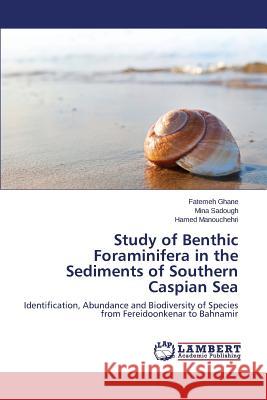Study of Benthic Foraminifera in the Sediments of Southern Caspian Sea » książka
Study of Benthic Foraminifera in the Sediments of Southern Caspian Sea
ISBN-13: 9783659670381 / Angielski / Miękka / 2015 / 76 str.
Caspian Sea is the biggest enclosed body of water on Earth with the surface area of 371,000 km. It is considered as the largest lake on Earth which is located between Europe and Asia. Apart from having valuable natural resources such as oil and gas, being the habitat of the precious species of sturgeon and their yield roe or eggs that are processed into caviar, increases the importance of this lake. There are also various kinds of life from a large number of animals and aquatics to tiny benthic microorganisms. Benthic Foraminifera are one of these groups that can be used as valuable bio-indicators in aquatic environments and in petroleum exploration. Their distribution can be affected highly with the environmental conditions of the benthic zone and their fossils are useful tools for biostratigraphy studies. This book, therefore, identifies the species of Foraminifera and studies the relation between their abundance with the environmental factors of the benthic zone in the southern parts of Caspian Sea. The analysis can enable us to be more aware of Caspian Sea ecosystem in order to have more appropriate management programs to achieve the sustainable development.
Caspian Sea is the biggest enclosed body of water on Earth with the surface area of 371,000 km². It is considered as the largest lake on Earth which is located between Europe and Asia. Apart from having valuable natural resources such as oil and gas, being the habitat of the precious species of sturgeon and their yield roe or eggs that are processed into caviar, increases the importance of this lake. There are also various kinds of life from a large number of animals and aquatics to tiny benthic microorganisms. Benthic Foraminifera are one of these groups that can be used as valuable bio-indicators in aquatic environments and in petroleum exploration. Their distribution can be affected highly with the environmental conditions of the benthic zone and their fossils are useful tools for biostratigraphy studies. This book, therefore, identifies the species of Foraminifera and studies the relation between their abundance with the environmental factors of the benthic zone in the southern parts of Caspian Sea. The analysis can enable us to be more aware of Caspian Sea ecosystem in order to have more appropriate management programs to achieve the sustainable development.











